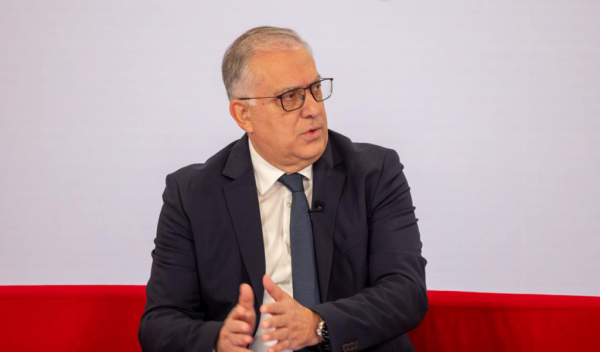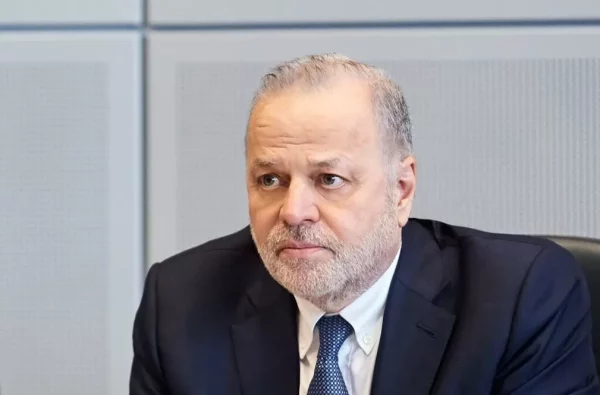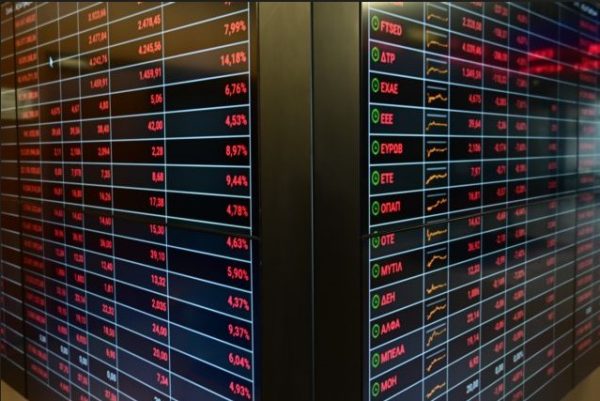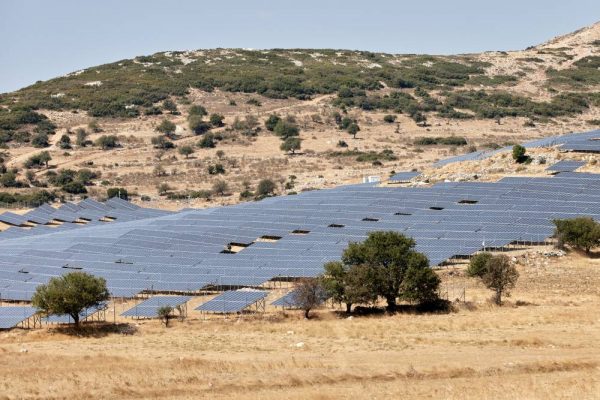
Uncertainty about the impact of the energy crisis and geopolitical developments on the economies is reflected in the yields on Eurozone bonds with the market also anticipating the rise in interest rates by the European Central Bank from this year.
In the shadow of the war and inflationary pressures, Greek borrowing costs had begun to rise since October 2021 – where the ten-year bond had risen to 1.338% from 0.847 in September 2021. After the Russian invasion of Ukraine, the yield has remains “stuck” at about 2.5% – 2.7%. Now, the Greek ten-year bond is a breath away from 3% and Greece is no exception. The increase may be more general, but higher yields are recorded, but it is expected in countries with higher debt, such as Italy where the 10-year bond is at 2.44%, Spain at 1.7%, Portugal at 1.8% , in France 1.26%, while in Germany it is at 0.8%.
At yesterday’s meeting, the central bank showed concern about the course of inflation. The ECB has again signaled that bond purchases under the so-called APP program should be completed within the third quarter of this year and says it is ready to “take whatever steps are necessary to fulfill the mandate given to the ECB to maintain price stability and to help safeguard financial stability,” he said. The move raises the chances of the ECB raising interest rates for the first time in a decade this year.
As it cares more about the prospects of inflation than growth, the ECB will continue to use the current window of opportunity to normalize its monetary policy. Its macroeconomic forecasts for next June are expected to provide coverage to the ECB to end its net asset markets in July, opening the door for a 25 basis point increase in September, PIMCO said. the return of deposit interest rates (from -0.50%) to zero, its ambitions for the future will be minimal.
Should Greece enter the markets?
The increase in borrowing costs has also frozen the country’s lending program. According to Public Debt Management Agency (P.D.M.A.), Greece had planned to issue securities worth 12 billion euros in 2022. It is still unknown whether the 10-year re-opening will take place in April, which was issued in January to raise 2 billion euros or will proceed to another version. JP Morgan analysts give Greece a chance to enter the markets by issuing a five-year or seven-year bond. The American bank also emphasizes in its recent report that it predicts that the Greece-Italy spread will remain stable in the medium term in relation to the current level of about 45 bp.
In relation to the spread against Germany it will move lower and from 211 bp from June and in September it will move at 170 bp while it will be formed at 180 bp from December 2022 to March 2023. Last year’s historical low and negative interest rates are long gone. Greece “built” a strong cash flow with last year’s cheap borrowing being the main source, which today amounts to 40 billion euros. A financial signal is sent by the financial staff as Greece is secured even in the hypothetical and not basic scenario where the country does not enter the markets at all until the end of the year.
Last year, Greece raised 15.5 billion euros from purchases and through the private placement of the 30-year bond. In particular, in January 2021, Greece proceeded to reissue a 30-year bond with a nominal value of 1.4 billion euros and a settlement value of 2.027 billion euros with private placement. This was followed in February 2021 by a syndicated issue of a ten-year bond of 3,500 billion euros, with a fixed interest rate of 0.75% and in March 2021, a syndicated issue of a thirty-year bond of 2.5 billion euros, with a fixed interest rate of 1.875%. In May 2021 syndicated issuance of a five-year bond of 3 billion euros with zero interest rate and in June 2021 followed the syndicated reissue of the ten-year bond of 2.5 billion euros with a yield of 0.888%. In September 2021, the five-year and thirty-year bonds of 1.5 and 1 billion euros were doubly reissued, respectively, with yields of 0.020% and 1.675%.
Prior to the Russian invasion of Ukraine, analysts estimated that Greece, after making its debut in January this year with a 10-year bond, would make five exits, plus one for a green government title. A new 5 year issue would come out in March to garner 1.5 billion euros, while the first quarter will be completed with the re-opening of the 30-year bond issued by the Greek State in 2021 to raise 1 billion euros.
What the ECB says about Greek bonds
The Governing Council of the European Central Bank intends to reinvest the amounts of capital from the repayment of securities acquired under PEPP at their expiration of at least until the end of 2024, refers to the official announcement of the decisions, after today’s meeting, and in any event, the future roll-off of the PEPP portfolio will be regulated in such a way as to avoid interference in the appropriate monetary policy direction. In the event of new pandemic-related market fragmentation, PEPP reinvestments can be adapted at any time with flexibility in terms of time, asset categories and countries.
According to the announcement, this flexibility could include the purchase of bonds issued by the Hellenic Republic in addition to the value of the bonds reinvested at maturity, in order to avoid the interruption of purchases in the specific country, which could negatively affect the transmission of monetary policy to the Greek economy, while it is still recovering from the effects of the pandemic. Clean buys under PEPP could be restarted, if necessary, to address the negative pandemic-related disturbances.
Latest News

Athens Launches Task Force to Safeguard Historic City Center
The new municipal unit will ensure compliance to zoning laws, curb noise, and address tourist rental issues starting from the Plaka district.

WTTC: Travel & Tourism to Create 4.5M New Jobs in EU by 2035
This year, international visitor spending is set to reach 573 billion euros, up by more than 11% year-on-year

IMF: US Tariffs Shake Global Economy, Outlook Downbeat
IMF slashes global growth forecast to 2.8% as U.S. tariffs create uncertainty and ‘negative supply shock

First Step Towards New Audiovisual Industry Hub in Drama
The project is set to contribute to the further development of Greece’s film industry and establish Drama as an audiovisual hub in the region

Airbnb Greece – Initial CoS Ruling Deems Tax Circular Unlawful
The case reached the Council of State following annulment applications filed by the Panhellenic Federation of Property Owners (POMIDA)

Mitsotakis Unveils €1 Billion Plan for Housing, Pensioners, Public investments
Greek Prime Minister Kyriakos Mitsotakis has announced a new set of economic support measures, worth 1 billion euros, aiming to provide financial relief to citizens.

Alter Ego Ventures Invests in Pioneering Gaming Company ‘Couch Heroes’
Alter Ego Ventures' participation in the share capital of Couch Heroes marks yet another investment by the Alter Ego Media Group in innovative companies with a focus on technology.

Corruption Still Plagues Greece’s Driving Tests
While traffic accidents continue to claim lives on Greek roads daily, irregularities and under-the-table dealings in the training and testing of new drivers remain disturbingly widespread

Pope Francis Died of Stroke and Heart Failure Vatican Confirms
As news of the official cause of death spread, tributes poured in from across the globe. The 1.4 billion-member Catholic Church is united in grief, remembering a pope who championed inclusion, justice, and compassion

Increase in Both Museum Visits, Revenues for 2024
As expected, the Acropolis was the top archeological site in the country, followed by Sounion, Mycenae, the ancient theater of Epidaurus, and Vergina in northern Greece


















![Ξενοδοχεία: Μεγάλο το ενδιαφέρον για επενδύσεις στην Ελλάδα – Η θέση της Αθήνας [γραφήματα]](https://www.ot.gr/wp-content/uploads/2025/03/Athens-hotels-90x90.jpg)






















 Αριθμός Πιστοποίησης
Αριθμός Πιστοποίησης